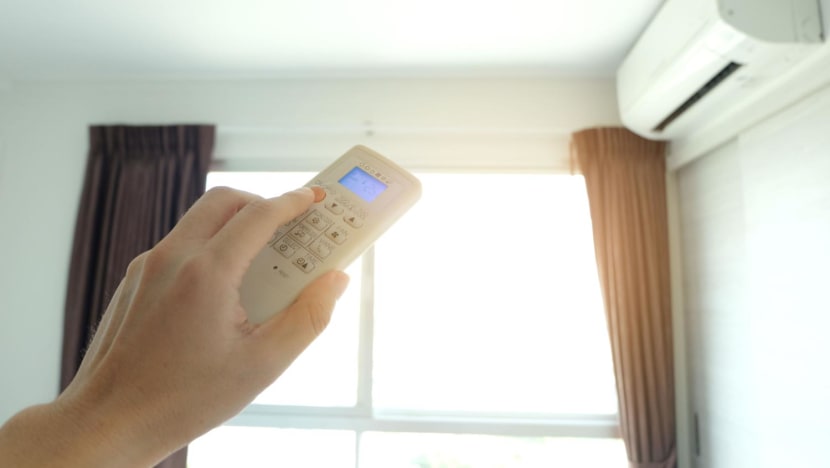Households to get financial incentive for reducing electricity use during peak periods from next year
The first of its kind initiative involves participating households with smart electricity meters installed monitoring their energy use through the SP mobile app, which will send alerts.


This audio is generated by an AI tool.
SINGAPORE: Singapore will test out alerting households on when to stop or postpone using their appliances during peak usage periods, in a first-of-its-kind effort to decrease energy consumption here.
Authorities said the programme will offer participating homes equipped with smart meters a financial incentive to reduce electricity use and help balance demand and supply.
Households contribute to about 15 per cent of Singapore’s total electricity demand, with activities such as washing clothes in the afternoons and blasting air-conditioning on a daily basis, especially during times of high demand, putting a significant burden on the grid.
Voluntary reduction of electricity use will bring benefits to the entire energy system as the maximum load it needs to cater to will decrease, said Ms Violet Chen from the Energy Market Authority (EMA) at the Singapore International Energy Week on Tuesday (Oct 24).
“This in turn reduces the need to start up less efficient power plants," said the director of the Industry Ecosystem and Development Department at Markets Systems Division.
She added that over the longer term, such changes will lead to more efficient infrastructure investments to meet demand growth.
The pilot is slated to launch in the second half of next year.
APP ALERTS ON USAGE
Households with smart electricity meters installed will be able to monitor their energy use through the SP mobile app, which will send alerts prompting people to temporarily reduce or defer their electricity use.
Households can do so, for example, by switching off their air-conditioning. They can also keep track of their weekly carbon emission through the app and adjust their electricity consumption habits.
The EMA said participants who reduce their energy usage will be able to enjoy benefits such as financial incentives, although it did not elaborate on what they would be. The pilot will allow households to play their part, said Ms Chen.
The initiative comes on the back of a regulatory sandbox last year for commercial and industrial companies to optimise their energy consumption, where participating companies had to manage their electricity demand when activated and received payments for doing so.
Singapore's electricity demand during peak periods is projected to grow at a compound annual growth rate of up to 6.5 per cent annually from 2023 to 2028.
WILL FINANCIAL INCENTIVES WORK?
Dr David Broadstock from the National University of Singapore’s Sustainable and Green Finance Institute noted that the government and regulators have over the years made efforts to nudge households to change their energy consumption.
“A repeated experience that we see from this within Singapore and other places in the world is that these nudges tend to have temporary effects. They don't necessarily sustain themselves, and so we don't get long-term shifts in behaviour,” he said.
Households tend to “forget a little bit about the money side of things when they close the door at the end of the day”, looking at what improves their quality of life, as opposed to businesses that focus on cost optimisation, he added.
However, one thing that people respond to is incentives, said Dr Broadstock. He pointed out that the government’s willingness to try this approach shows a significant change in the way that it is addressing household energy consumption.
The senior research fellow and energy transition lead said that on top of alerting on total usage, being able to identify which appliance should be targeted using technology would be better.
It will be difficult to say what level of incentive would be sufficient to encourage households to truly change their behaviour, he added.
“The reason is not because it's difficult to measure the value. It's actually that different households will have different values,” he said.
For instance, as a researcher, he would have to weigh how much he would be willing to receive to temporarily shut down his computers.
“I then need to think about the costs of needing to wait another day or possibly even a week to restart that work and get back to the same point,” he said.
On the other hand, his children might be more willing to stop playing on Roblox, an online game platform, for a couple of hours for S$10, he said.
“We need to be thinking about how to vary these prices by time of day, and possibly to look into how different households may have different valuations,” he said.



















